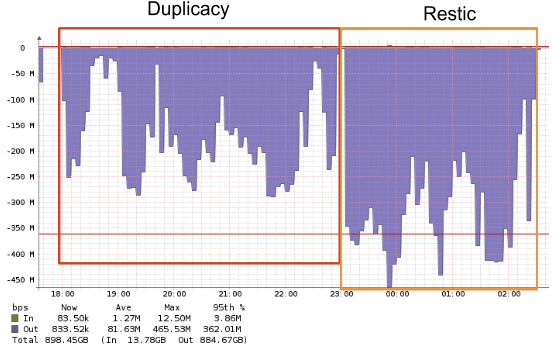

I’d suggest to backup only unique personal data (photos, documents, videos, savegames, etc), which can not be recovered by reinstalling Windows or applications. I think he's just (understandably) afraid of messing things up at some point by accident and ruining his rep a little. Others would have called this stable v5 already. And if you have to then a couple more minutes don't Kenneth is reeeeeeallly careful. You can change the blocksize to optimize for your data structure and internet connection. But that makes sense - it's stored in blocks. Ĭonsidering this is /r/datahoarder we all tend to have huge Can confirm this one. The number of folders you can watch is limited. I believe it only checks if the "modified" date This wouldn't make all that much sense anyway. I'm backing up terabytes, if it were to calculate hashes it would take months. I'll chime in since this gives me a chance to elaborate which I should've done in the first place This can't be true. That way your only uploading encrypted files to the cloud, and don't have to also keep redundant copies (encrypted and non encrypted) locally.ĭid you perhaps find other viable solutions? Open source? I really long for some redundancy. It makes a copy of a given file, encrypts that copy, uploads the encrypted version to your cloud server of choice (in my case B2), and then deletes the plaintext copy and the encrypted copy from your computer. This program runs in the background on your computer to continuously back up your files. With all that being said, you could use whatever cloud service you want, as the important part comes with.ĭuplicati, an open source file duplication and encryption software. I think I pay about $1.30 per month to keep about 300 GB stored there. If you ever do need to recover your data, Z is the highest figure (but is still not really that expensive at all).
DUPLICATI VS DUPLICACY DOWNLOAD
It costs $X per Kb to upload to the B2 server, $Y per Kb per month to keep it stored there, and $Z per Kb to download from the B2 server.

You don't pay a fixed amount per month for unlimited access, instead you pay by the amount you have stored. I searched for a solution to this for a long time, and ended up deciding upon using Backblaze B2 + Duplicati.īackblaze B2 is just the cloud storage solution I chose to go with because I really like it's payment structure. I personally use B2 as it's among the cheapest cloud storage providers out there as far as I know. Keep in mind though that the only complete protection against disaster (like a housefire etc) is to have an offsite backup. This will increase your resistance against disaster scenarios. So one thing you could do if you're nervous about your current backup external HDD failing soon, is to get a second drive and schedule RSync to essentially mirror the backup data from drive #1 over to (new) external drive #2 (or a cloud storage target).

You could use this, for example, to back up your main files to your current external drive.Īnother tool, RSync, automates basically direct copying of files from one place to another (as far as I've heard it can also do local drives as well as cloud targets).
DUPLICATI VS DUPLICACY FULL
The major benefit of this is that you set it to backup entire directories with filters (with full ability to exclude specific subdirectories or folders as you wish), but after that you don't need to remember to copy-and-paste over the files you want to back up, it handles it for you including added stuff. There are lots of tools out there for this, but here are just a couple:ĭuplicati is a free, open source tool that will make scheduled incremental backups from anywhere on your computer to any of a number of backup storage destinations, including cloud providers (Amazon S3, Backblaze B2, etc) as well as local options like another hard drive on your system or a network drive on your home network. But IMHO you might want to ramp up and automate a bit. For one-time use, just copy and paste or clone the drive as previously suggested.


 0 kommentar(er)
0 kommentar(er)
